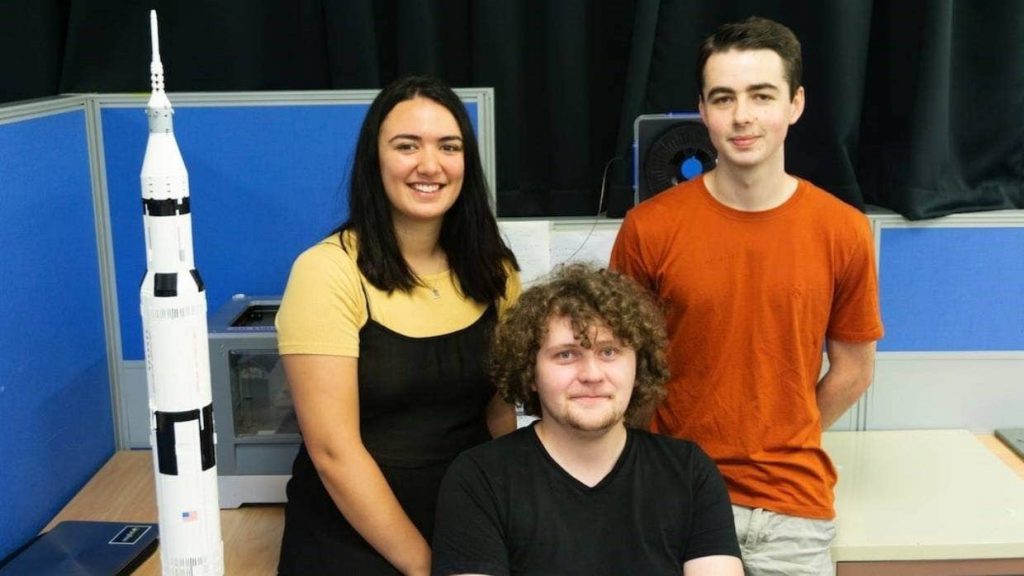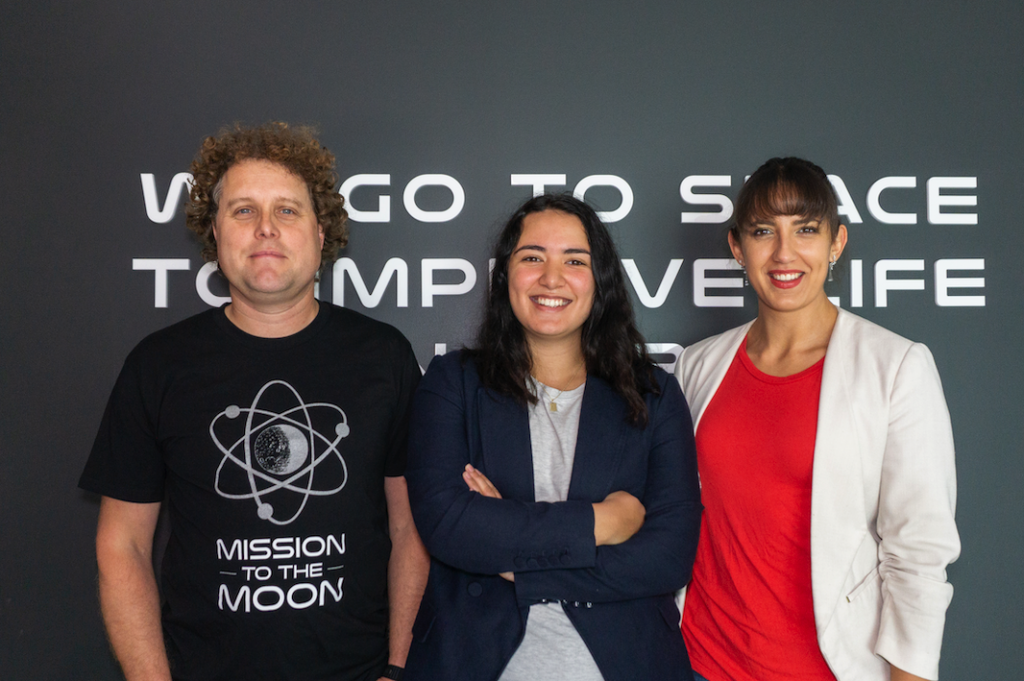Astrix chief executive Fia Jones (centre) with tech board adviser Peter Beck and Outset Ventures chief executive Imche Fourie.
A start-up run by three 21-year-olds has scored $500,000 in investment to advance technology that could increase the capability of small satellites, and a free ride into space from Rocket Lab for a key trial.
Fia Jones, Will Hunter and Max Daniels were studying at Auckland University when they decided to set up their own business, Astrix Astronautics, developing new lightweight solar arrays that they believe can more than double the power-to-weight ratios of those in use today, to 300 watts per kilogram.
One of the features of the arrays is that they use gas to deploy once in space, reducing the need for moving mechanical parts.
Rather than use inflation to hold the structure in place the whole time, “it is only used to deploy the structure”, Astrix’ chief executive Fia Jones says.
The trio have tested the system in a vacuum in Rocket Lab’s Auckland factory and in July a prototype system will hitch a ride on an Electron rocket for a two-day trial in low orbit.
Astrix has secured $500,000 in early stage funding from Outset Ventures (formerly LevelTwo Ventures), Icehouse Ventures, Sir Stephen Tindall’s K1W1 fund and Rocket Lab, to build the prototype and for further research.

Astrix founders’ Fia Jones, Max Daniels (centre) and William Hunter are all 21 and have attracted investment from some of the country’s best known tech investors.
Jones started developing the technology two years ago, aged 19, while studying physics and participating in Auckland University’s Programme for Space Systems.
She decided to put her third-year studies on hold to pursue the opportunity.
“I did have to make a choice,” she says.
“This opportunity can’t wait, but my degree can.”
Beck, who sits on Astrix’ advisory board and chipped in its first $15,000 of funding, said it was exciting to see the next generation of entrepreneurs, such as Jones, grow global space startups from New Zealand.
“The pace of the space industry is rapidly accelerating and we need more companies like Astrix setting out to help the thousands of businesses relying on satellites to advance their missions and crack some of the world’s pressing problems like climate change and food scarcity,” he said.
21 April 2021.

